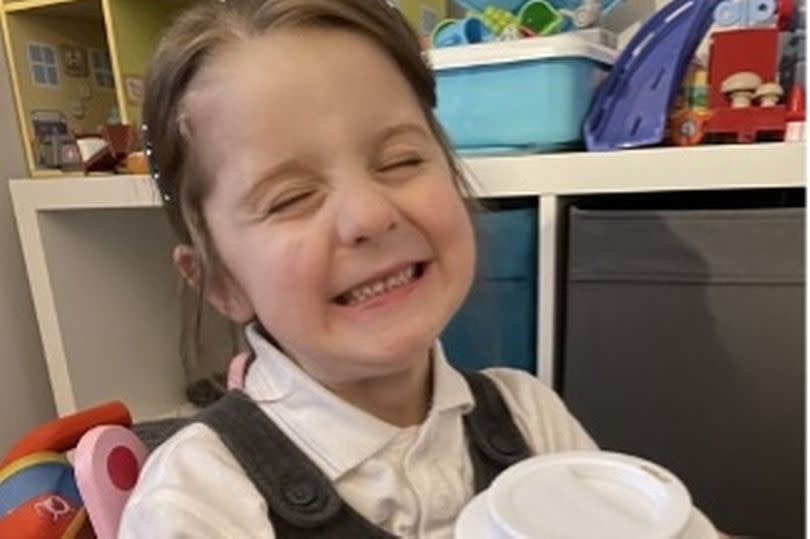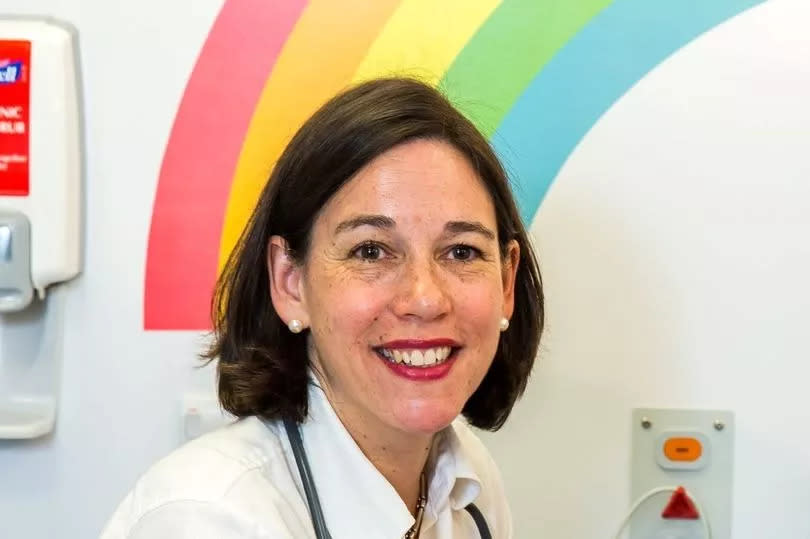Adorable County Durham girl who is allergic to milk is on pioneering £2.5m trial - and now loves a daily hot chocolate

A Spennymoor tot who has spent her life so far allergic to milk is one of a handful of youngsters taking part in a pioneering trial that could, doctors hope, "make allergies history".
Grace Fisher, 5, is one of the children and young people taking part in the Natasha trial - named for Natasha Ednan-Laperouse, 15, who died after an allergic reaction to sesame seeds in a sandwich in 2016. Newcastle Hospitals NHS Trust is one of a handful of trusts nationwide taking part in the pioneering Natasha clinical trial.
28 children and young people with milk or peanut allergies are currently taking part in the £2.5m trial, funded by The Natasha Allergy Research Foundation - which was set up by Natasha's parents.
The trial sees youngsters given daily doses of products which might trigger their allergies, under strict medical guidance. The aim is to help their body and their immune system "get used" to the allergen. In Grace's case she's been able to have daily hot chocolates to boost her immune system's reaction to milk.
Known as oral immunotherapy (OIT) – it means children living with food allergies might see the severity of their reaction lessen, or even disappear completely in future.

Grace’s mum, Emma, said: "Grace is over six months into this journey and is doing amazingly. She is currently on 120ml of milk and loves her daily hot chocolates. Even Santa thought of her and bought her a new cup to have her daily milk in!"
Paediatric consultant and lecturer Dr Louise Michael is leads on the trial in Newcastle. She said medics had already seen progress in youngsters like Grace, adding: "Living with a food allergy can be challenging, particularly for young people who are unable to eat popular foods or have to miss out on social occasions with friends. The majority of our patients have become more confident in managing their allergy since being on the trial, which is really positive to see for both the patient and their family."
The three-year trial - led by researchers at the University of Southampton, University Hospital Southampton and Imperial College London - will, medics hope, provide the evidence for the treatment to be made available on the NHS.
Dr Michaelis added: "The NATASHA trial is so important when it comes to helping patients with allergies live a fuller, more normal life. We hope that the trial will also help health professionals to understand the potential benefits of oral immunotherapy for people with certain allergies."
So far, a total of 139 children, aged two to 23 years with food allergy to peanut or cow’s milk, have started treatment on the Natasha trial – the first major study to be funded by the charity which was set up by Tanya and Nadim Ednan-Laperouse.
Nadim and Tanya said: "We are so happy that some children with peanut and milk allergies are already seeing the benefits of using everyday foods under medical supervision to treat their allergic disease. If Natasha were alive today, this is exactly the type of research she would have loved to be part of. This is a major first step in our mission to make food allergies history. We look forward to seeing the final results."

 Yahoo News
Yahoo News 
